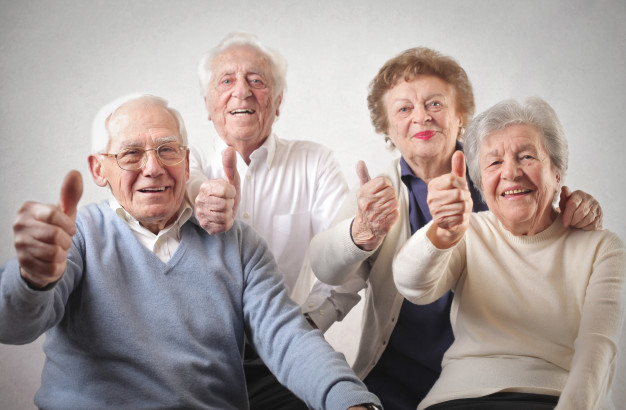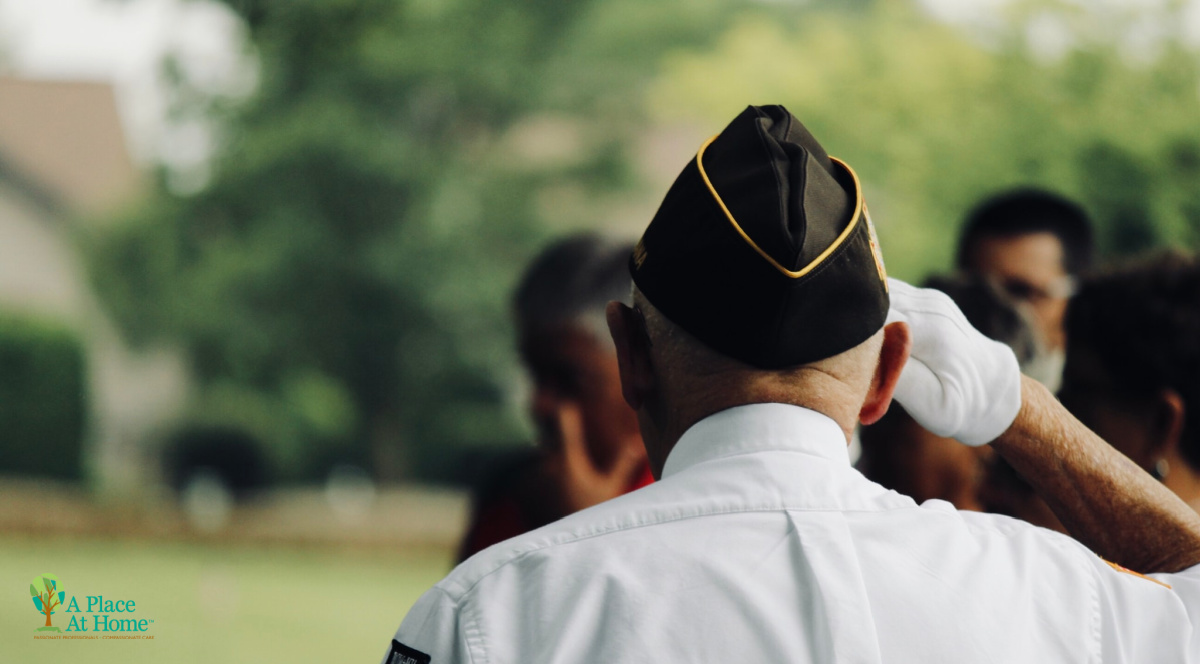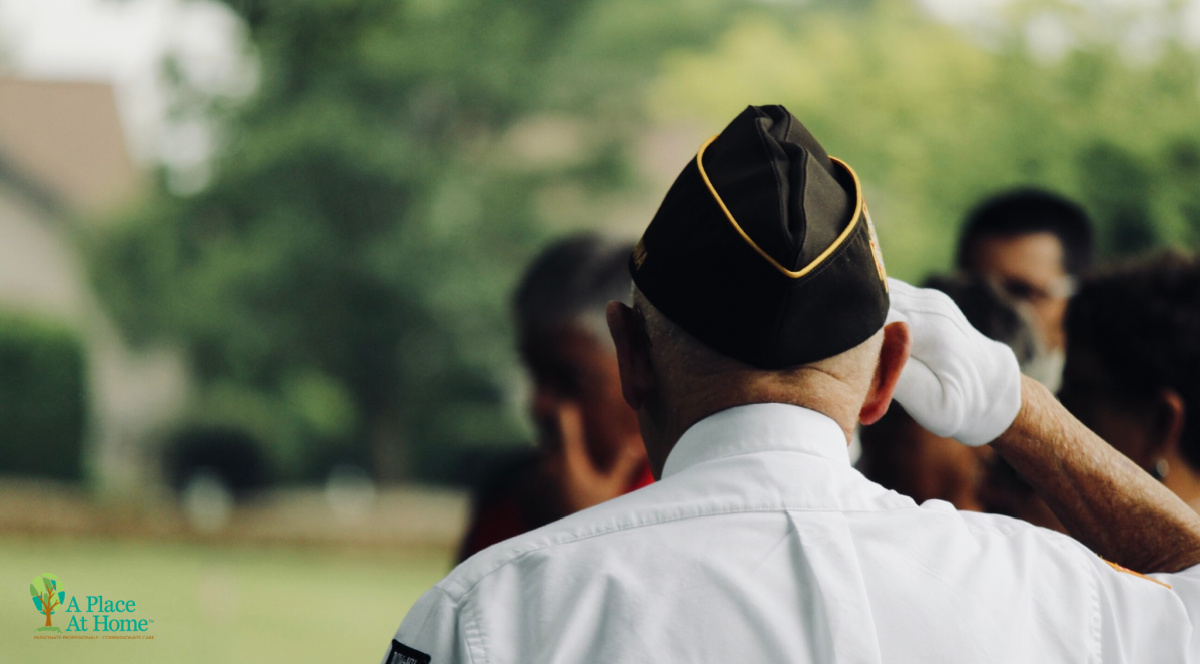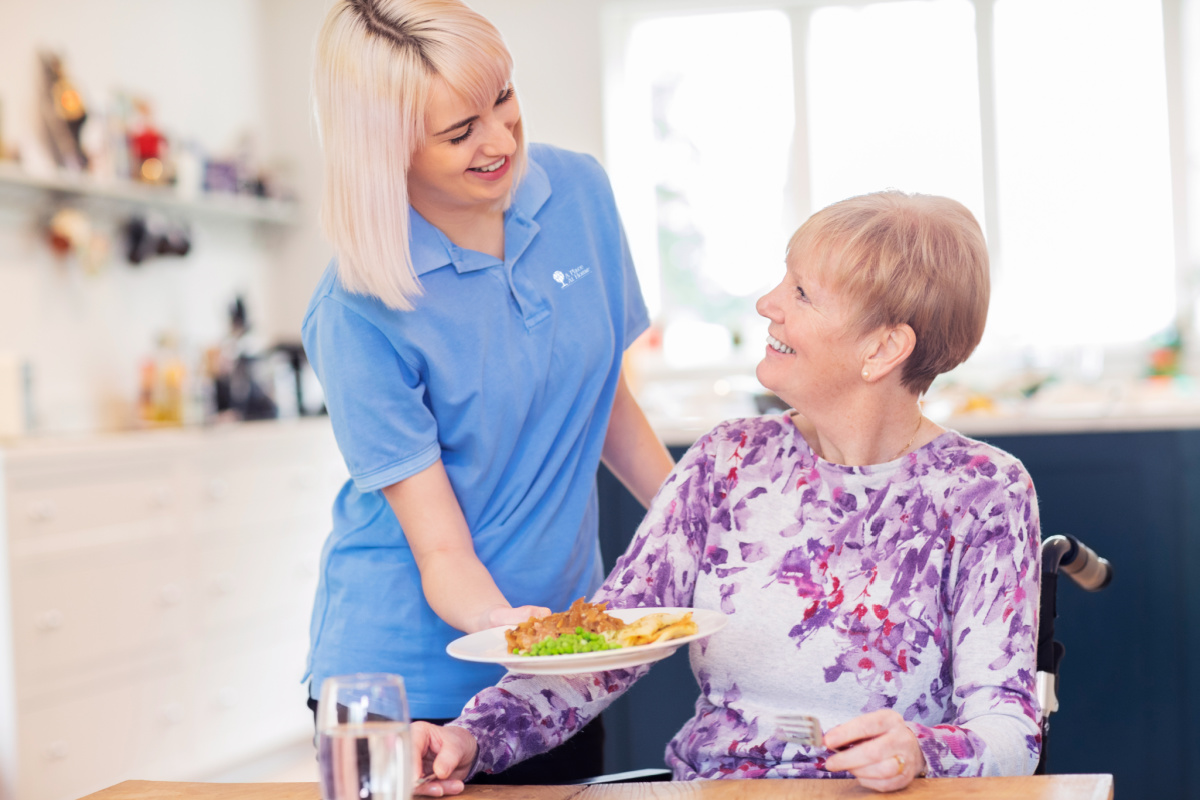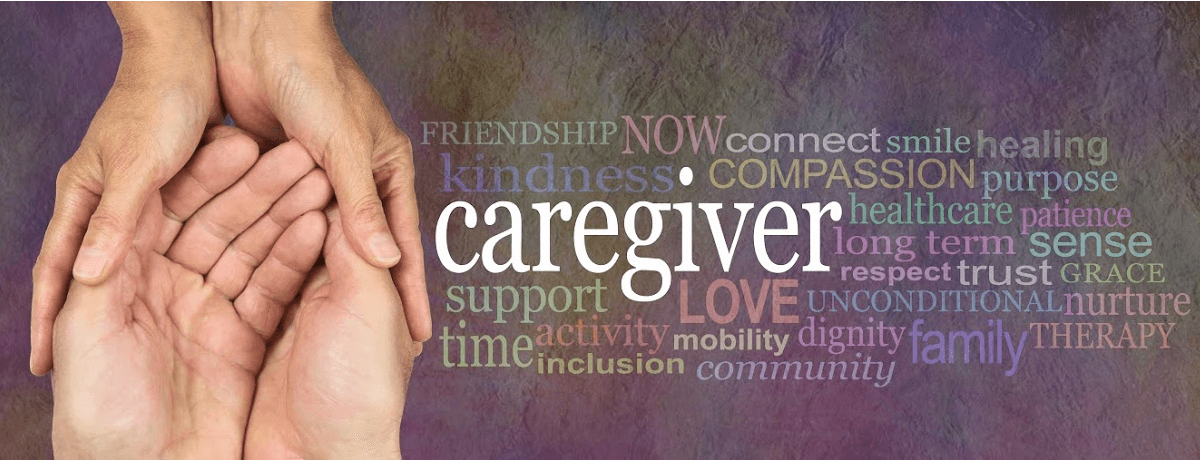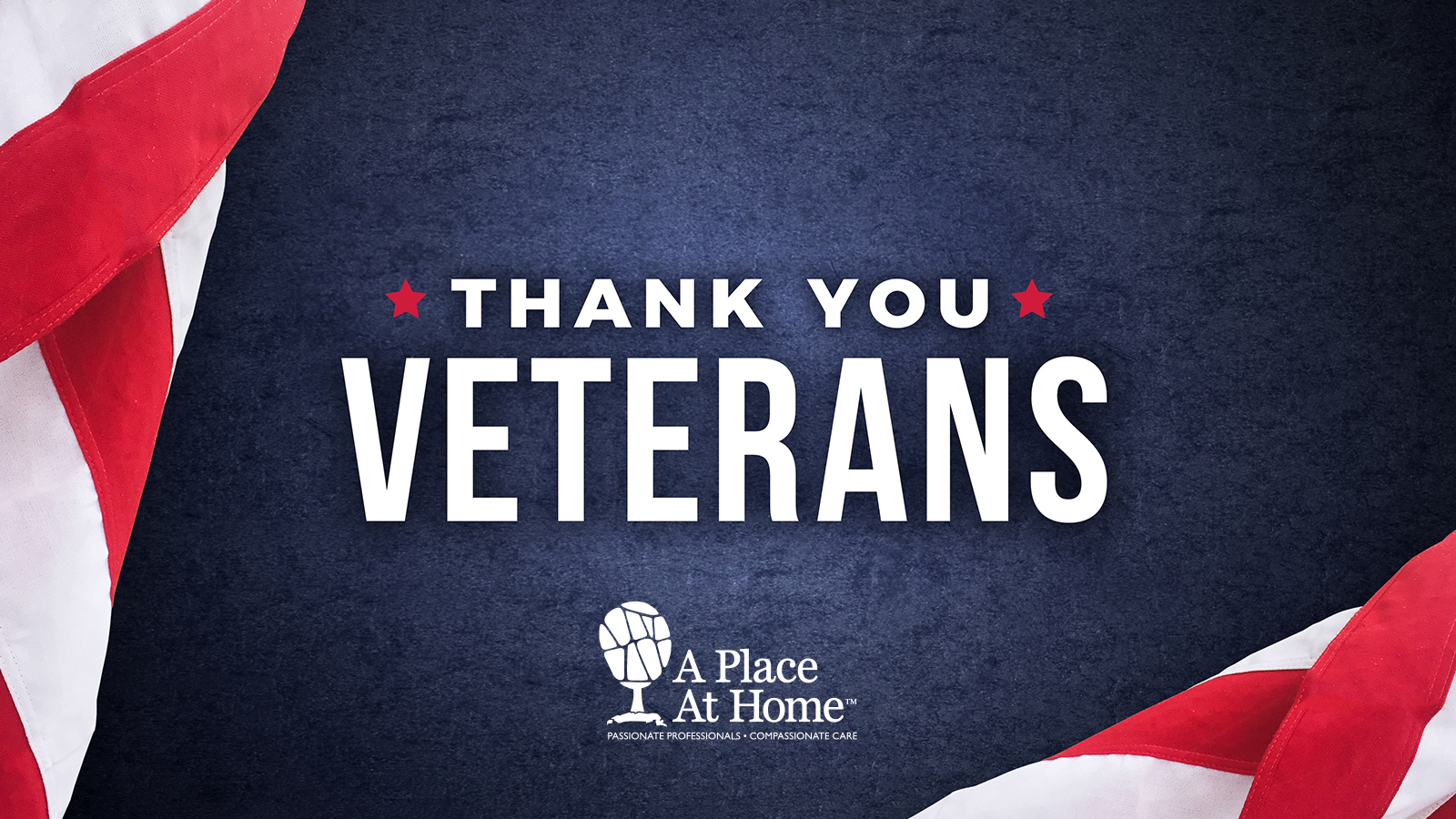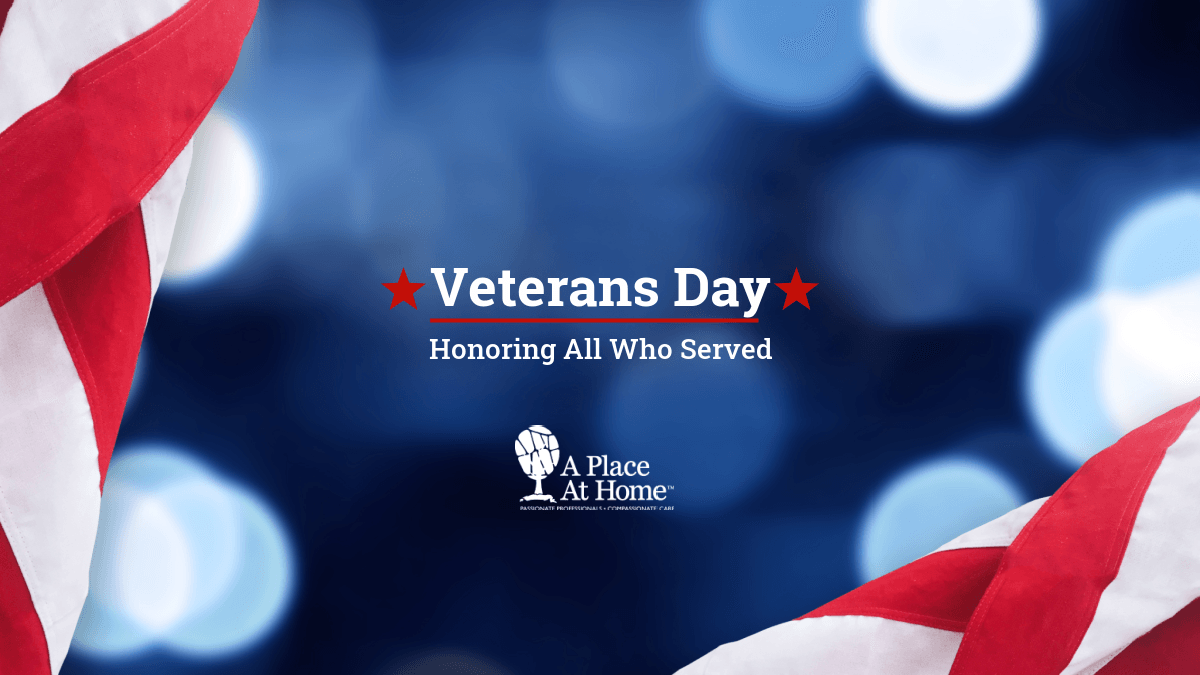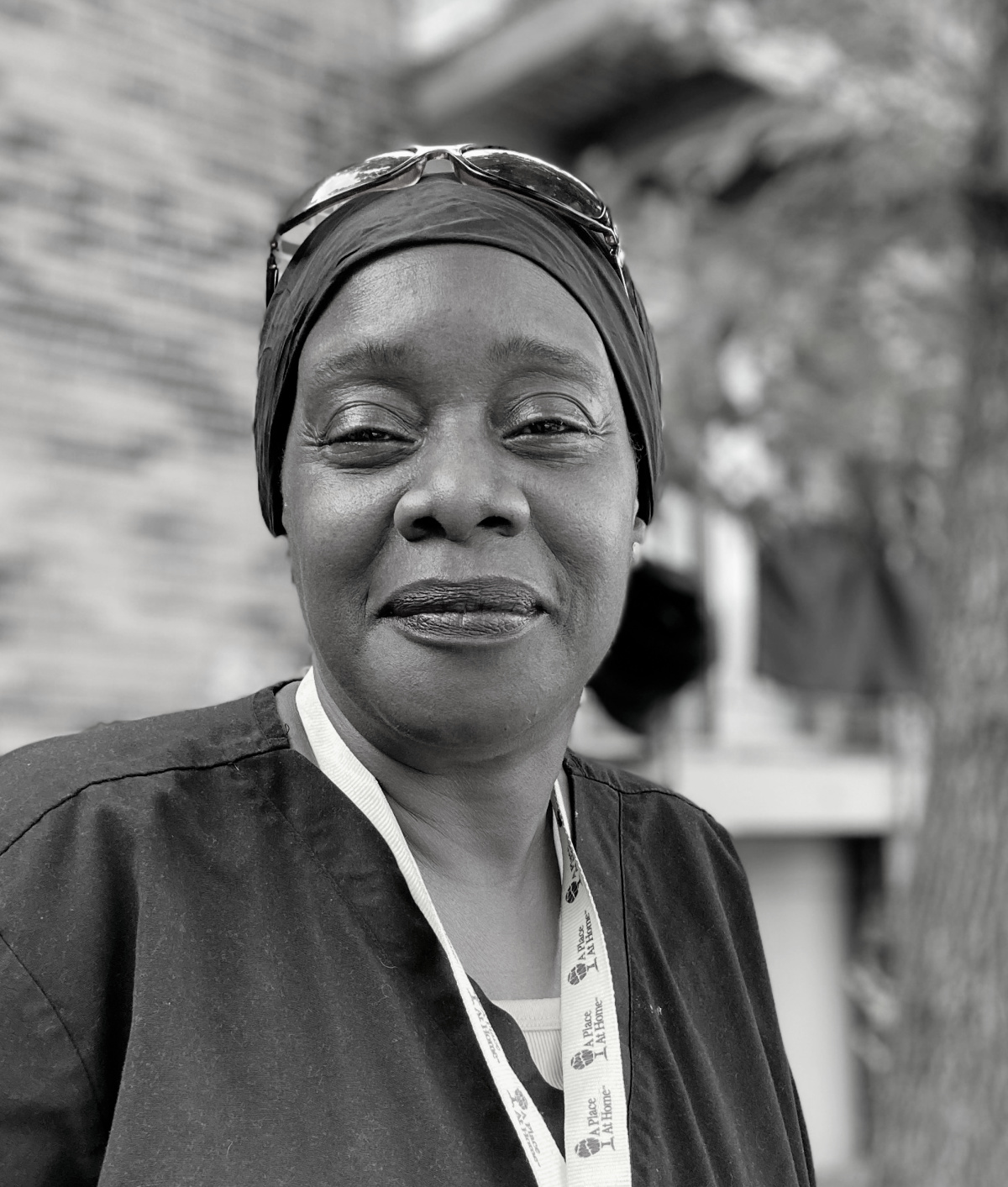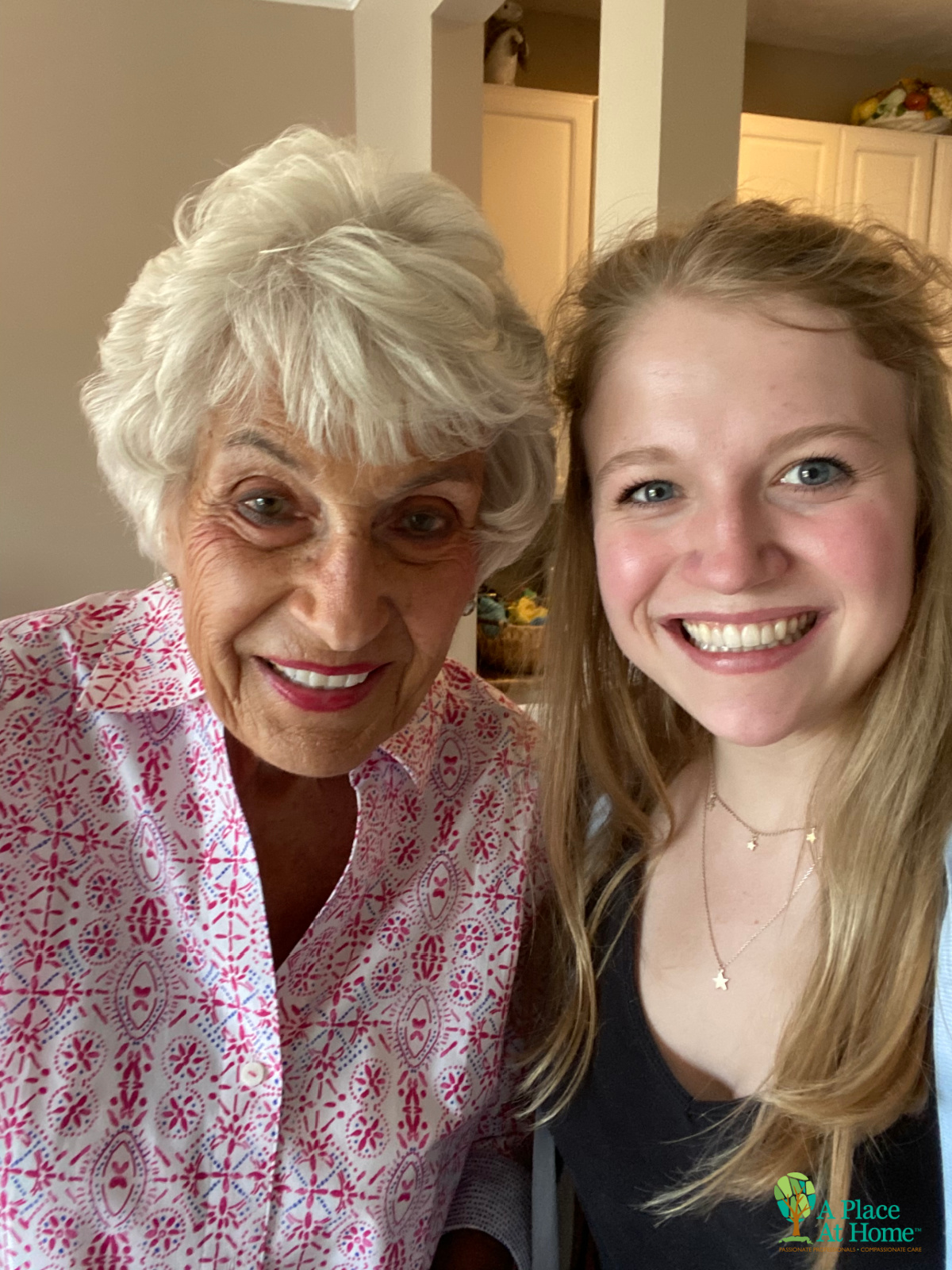We have a constantly growing library of video topics posted on YouTube. By watching, you learn the best approach to get the right home care services at the best available prices in your area. You also learn how to maximize those services once you choose to go forward with home care.
Continue readingNational Pearl Harbor Remembrance Day: Honoring the Anniversary of the Attack, the Lives Lost, and Dorie Miller
President Roosevelt proclaimed December 7th to honor the anniversary of the Japanese attack on Pearl Harbor and the lives lost that day.
The attack on Pearl Harbor ushered in the United States’ active involvement in World War II. The attack itself lasted just a bit over an hour but killed a total of 2,403 US citizens, 68 of whom were civilians. This day is relevant, not only because of its historical significance.
Dorie Miller was the first African American to be awarded the Navy Cross – the highest award given in the Navy.
During the attack, Dorie attended to his wounded captain, moving him to safer cover, and broke racially motivated protocol at the time to man a machine gun, taking down two Japanese aircraft. After the attack, Dorie was one of the last men to leave his ship as it went down. He spent this time pulling injured sailors out of the water and to safety. In 2019, the Navy began building a supercarrier, christened the “USS Dorie Miller.”
Dorie’s actions exemplify what it truly means to honor your country, despite the odds against you.
A Place At Home honors all veterans, whether they served during wartime or not. All across the country, our caregivers are helping veterans stay in their homes safely and independently. It’s the least we can do to thank them for their time and service.
Veterans spend their careers serving so we can stay safely in our homes; we are honored to do the same for them when the time comes.
For veterans specifically, there are financial resources available to help pay for in-home care, should the need arise. These benefits can cover homemaker services as well as personal care. Veterans need only speak with their team at the VA. Their physician can write an order for up to nine hours a week of care, with no out-of-pocket expense for the vet. As well, a benefit called Aid and Attendance exists for not only veterans but their surviving spouses. This particular benefit has eligibility guidelines but will pay for care either in the home or in a senior living community, up to $27,195 per year.
We are proud to ensure these American heroes have the care and security they need when they need it most. If you are a veteran or know someone who is, reach out to us today. We will help you navigate the options and benefits available.
National Pearl Harbor Remembrance Day: Honoring the Anniversary of the Attack, the Lives Lost, and Dorie Miller
President Roosevelt proclaimed December 7th to honor the anniversary of the Japanese attack on Pearl Harbor and the lives lost that day.
The attack on Pearl Harbor ushered in the United States’ active involvement in World War II. The attack itself lasted just a bit over an hour but killed a total of 2,403 US citizens, 68 of whom were civilians. This day is relevant, not only because of its historical significance.
Dorie Miller was the first African American to be awarded the Navy Cross – the highest award given in the Navy.
During the attack, Dorie attended to his wounded captain, moving him to safer cover, and broke racially motivated protocol at the time to man a machine gun, taking down two Japanese aircraft. After the attack, Dorie was one of the last men to leave his ship as it went down. He spent this time pulling injured sailors out of the water and to safety. In 2019, the Navy began building a supercarrier, christened the “USS Dorie Miller.”
Dorie’s actions exemplify what it truly means to honor your country, despite the odds against you.
A Place At Home honors all veterans, whether they served during wartime or not. All across the country, our caregivers are helping veterans stay in their homes safely and independently. It’s the least we can do to thank them for their time and service.
Veterans spend their careers serving so we can stay safely in our homes; we are honored to do the same for them when the time comes.
For veterans specifically, there are financial resources available to help pay for in-home care, should the need arise. These benefits can cover homemaker services as well as personal care. Veterans need only speak with their team at the VA. Their physician can write an order for up to nine hours a week of care, with no out-of-pocket expense for the vet. As well, a benefit called Aid and Attendance exists for not only veterans but their surviving spouses. This particular benefit has eligibility guidelines but will pay for care either in the home or in a senior living community, up to $27,195 per year.
We are proud to ensure these American heroes have the care and security they need when they need it most. If you are a veteran or know someone who is, reach out to us today. We will help you navigate the options and benefits available.
Home Care Prices – Knowing What You Need Saves Big Bucks
Home Care Pricing – The Devil Is In The Details
Do you need to find home care services for yourself or a family member? Are you trying to find home cares prices you can afford? Whether a family member or the client does the looking, the terminology in the home care industry is confusing and frustrating. Choose the wrong type of home care services and you’ll pay hundreds of dollars more in senior care costs. Here are some quick, easy pointers to help you navigate these services like a Pro.
Home Health Is Not The Same As Home Care
Home Health is what the name implies…health care in the home or senior living community where the Client lives. An example would be physical therapy at home after an accident. These folks work through insurance programs like Medicare or VA most of the time and prices are provided. This also means Home Health Agencies will not accept companion or homemaker service requests under normal circumstances. Home Health services are often assigned by the hospital, nursing facility or rehab center the client is leaving. Regardless, patients DO have the right to make this choice themselves.
Home Care: Companion Care vs. Private Duty Home Care
Home Care services are centered around non-medical assistance that allows the Client to age more safely while living in the comfort of their own home, family member’s home or senior living community. Home Care gets broken into two service levels in most states. These service levels are Companion Care and Private Duty. Prices vary significantly between them. Here are brief descriptions of their services and differences.
Private Duty
These providers perform a range of personal care tasks called ADLs (Activities of Daily Living). ADLs include bathing, toileting and dressing patients unable to perform these activities for themselves. While they are also able to perform Companion Care services, these providers often require a minimum number of hours and are generally more expensive. Hourly base rates often range from $23-$35+ on average. Add-ons drive the costs even higher. If you need a more hands-on care approach, Private Duty is what you’re looking for. However, many folks seeking basic services hear these rates and go no further. Yet, there is still another option. This alternative to Private Duty is Companion Care.
Companion Care
These providers offer the level of care most families seek. These families want someone to help with IADLs (Independent Activities of Daily Living) while the Client is home alone. This list of services allows for basic companionship, light housekeeping, fixing a meal, medication reminders, grocery shopping, etc. The Caregivers offered by these providers are usually a mix of CNAs, Home Health Aides and independent Caregivers. They provide the majority of the services Private Duty providers perform at a lower cost per hour. As a result of the reduced level of care needed, prices for these services average just $20-$27 per hour based on the number of days and hours being requested.
Agencies vs. Registries
It is also important to be aware of the differences between Home Care Agencies and Home Care Registries. While both may provide Private Duty services or specialize in Companion Care duties, the way they operate is quite different.
Registries (or Nurse Registries)
Registries generally do not employ the Caregivers they represent. They act more like a staffing agency for Independent Caregivers. Many of these Caregivers do not carry health insurance, general liability coverage, a professional liability policy or Workers Compensation insurances. Should an uninsured Caregiver get hurt, injure the Client or even take/break a valuable item in the Client’s home, the Client would be responsible for the expenses resulting from the incident.
Home Care Agencies (like A Place At Home)
Agencies are required by the State of Florida to fully employ their Caregivers. In addition, all Caregivers working for an Agency must undergo a Level II background check by the State to protect our seniors. Our franchisor takes the level of protection even further by requiring all of those insurances listed previously. Our Agency also requires initial drug testing and random drug testing throughout employment. We protect both our Clients and Caregivers from unfortunate situations where feasible.
This quick explanation will aid you in your efforts to provide the appropriate level of care for yourself or loved one. Choosing the right services and level of care you or your loved one needs early in the search will also save you time, money and hopefully keep your blood pressure at a safe level.
My Team and I are always available to you should you have any questions. Please feel free to call our offices at 407-565-7600 anytime. You can also send an email to stephen.sherbin@aplaceathome.com if you have a question, comment or need assistance.
Have A Blessed Day!
Steve Sr.
Other Resources:
Home Care Association Of Florida:
https://www.homecarefla.org/general/custom.asp?page=whatishomecare
Agency For Home Care Administration
https://ahca.myflorida.com/
The information in this article is based on personal experiences in the State of Florida. Information will vary from State to State. We strongly advise readers to learn and follow the specific guidelines and laws in their own States and municipalities. The opinions expressed here are for entertainment purposes only. They are the personal opinion of the author and not necessarily the views or opinions of A Place At Home. We do not seek to provide legal or financial advice and always strongly recommend engaging an attorney or financial advisor who specializes in the desired services. All content is the trademarked property of the author and may not be printed or reproduced without the author’s express written consent.
We Stand Greater Than Diabetes
November is American Diabetes Month. As declared by the American Diabetes Association, this year’s theme is “We Stand Greater Than Diabetes.” The association chose this theme to highlight that when we stand together to support the research efforts, legislation, and a healthy lifestyle, we can be greater than the threat of diabetes.
There are three main types of diabetes: Gestational, Type I, and Type II. Type I and II are the most common. Most of the time, patients can successfully manage their diabetes, no matter which kind. Managing this condition can be done through diet and exercise, and in some cases (always, in the case of Type I), medication.
But what is the difference between Type I diabetes and Type II diabetes?
- Type I Diabetes: With this type, the body doesn’t produce insulin at all. This type cannot be prevented but can be addressed with medication and insulin therapy. A healthy diet and regular exercise can help manage Type I as well.
- Type II Diabetes: Though Type II is preventable, it is the most common type. It often occurs in aging adults. Someone who has Type II diabetes can produce insulin, but their body doesn’t use it properly. One can manage this type successfully with diet and exercise, but in some cases does require medication.
While there’s no cure for diabetes, managing the disease can ensure most people diagnosed will live long, healthy lives. However, complications from the disease can arise if it is not taken care of properly. If left unchecked, this disease can lead to underlying conditions that cause further complications and stress on the body.
Some of these complications are seen frequently in older adults and can require regular medical attention and care.
When diabetes is not managed appropriately, neuropathy (a condition affecting the nerves that can cause a loss of feeling and weakness in the area affected) and poor circulation can occur. This can quickly lead to diabetic wounds and ulcers, often seen on the feet and lower extremities. Not only that, but uncontrolled diabetes can cause other, severe conditions. Examples are heart disease, stroke, kidney disease, issues with vision, and some skin conditions. And of course, some of these can require frequent hospitalizations and multiple new medications.
If you have diabetes, there are things you can do to prevent further complications.
You must keep track of any prescribed medications or insulin therapies. Ensure you’re tracking your blood sugar regularly, if necessary. And of course, maintain a healthy diet and get as much exercise as possible. If your diabetes has already caused complications, it might be a good idea to reach out to an in-home care company that can help you manage a healthier lifestyle. Having caregivers in your home can help ensure that you’re following a proper diet, can help with medication reminders, and, in some cases, medication management. You can also have the peace of mind of having oversight to address any further complications that might emerge.
If you’re an aging adult with diabetes or know someone who could use assistance managing the disease process, reach out to us today. Our professional and trained caregivers can help.
November 2020: Recognizing Family Caregivers
November is National Family Caregiver Month. This month, we recognize the importance of those that serve as caregivers for their loved ones.
In 1994, the Caregiver Action Network dubbed November as the month to recognize and honor those Americans that give their time and energy to care for the ones they love. This year’s theme is “Caregiving Around the Clock,” and for a good reason.
Of the 53 million adults who identify as a family caregiver, 40% of them live with the person they care for full-time.
Being a family caregiver is no small feat. Caring for another person can be a full-time job. Given that most Americans require two incomes to support their households, most family caregivers juggle careers, children, and life in general. Whether you’re an adult child caring for a parent, or a spouse caring for your other half, caregiver burnout is a real thing. The pandemic doesn’t make things any easier. The CDC is now recommending that family caregivers be assessed regular mental health assessments in the future.
Currently, almost 40% of those caring for a loved one are experiencing anxiety and depression directly related to COVID-19.
Some of that anxiety is from the everyday stress of juggling life and caring full-time for another adult. But some of this stress comes from situations we’ve never seen before in our lifetimes. For example, the decision to keep a parent home versus moving them into a senior living community. While the idea of being around one’s peers and having the socialization that communities can offer, the pandemic has many people choosing to keep their loved-ones home, where it’s safer from the risk of infection. For some, their loved ones were living away from home when Covid hit the US. Now, the concern is the isolation that their loved-ones are facing while visitors are no longer allowed into facilities.
Whatever the situation, family caregivers are facing unparalleled levels of anxiety and stress.
National Family Caregiver Month is an excellent time to remember that you can’t pour from an empty cup. If you’re a family caregiver, you must take care of yourself first, no matter how counterintuitive it may feel in the moments of everyday life. Taking care of yourself looks like getting enough sleep, exercise, and yes, even time away from the person you’re caring for.
It can be challenging to decide what you can remove from your plate when caring for someone you love. Start with small doses. For example, managing your loved one’s medications can be a daunting task. Have an agency come in and take over this task for you. It takes an hour or less a week, but the weight off of your shoulders is invaluable. You can also hire an agency to provide respite care. Respite can give you the much-needed opportunity to step away and take time for yourself. Having someone you trust to take care of your loved one while you take care of yourself is also invaluable.
You may feel guilty about taking time for yourself, but having the time to fill your cup will make huge strides in your quality of life. And that will positively impact the quality of time and care that you’re able to provide your parent, spouse, or other family members. If you’re a family caregiver and struggling with caregiver burnout, reach out to us. A Place At Home offers both respite care and medication management, among other services. Our priority is caring for your loved one so that you can care for yourself.
Proud to Honor Veterans on Veterans Day and Every Day
Each year on November 11th, as a nation, we celebrate Veterans Day. This day can be confused with Memorial Day, but there is an essential distinction between the two. Memorial Day honors Veterans that gave their lives defending our country. Veterans Day celebrates the lives of all American Veterans who served during wartime.
Veterans Day was conceptualized in 1918 to celebrate the end of World War I. The day was dubbed “Armistice Day” due to the Allies and Germans calling a truce. The truce went into effect on the 11th day of the 11th month in the 11th hour. While World War I was thought to be the “war to end all wars,” World War II and the Korean War soon followed. As such, veterans and other military entities solicited to Congress to have the day changed to Veterans Day.
Most Americans are aware that Veterans are eligible for benefits throughout their lifetimes due to their service to our country. But few people, including some Veterans themselves, know that these benefits can include in-home care.
These benefits can cover homemaker services as well as personal care. Veterans need only speak with their team at the VA. Their physician can write an order for up to nine hours a week of care, with no out-of-pocket expense for the Veteran. As well, a benefit called Aid and Attendance exists for not only Veterans but their surviving spouses. This particular benefit does have eligibility guidelines but will pay for care either in the home or in a senior living community, up to $27,195 per year.
Despite the current pandemic, there are still ways we can honor Veterans this Veterans Day. You can donate to any of the Veteran-approved foundations found here or ask a Veteran you know to share about their time in the service. As well, you can send letters or a postcard to a local military installation. National Parks offer free admission to everyone on Veterans Day – invite a Veteran you know to explore with you (keeping safety in mind with social distancing, of course).
At A Place At Home, we honor aging Veterans by caring for them in their homes.
Every day across the country, our caregivers provide personalized care and companionship to retired members of our country’s military. We are proud to ensure these American heroes have the care and security they need when they need it most. If you are a Veteran or know someone who is, reach out to us today. We will help you navigate the options and benefits available.
A Place At Home is Proud to Honor Veterans on Veterans Day and Every Day
Each year on November 11th, as a nation, we celebrate Veterans Day. This day can be confused with Memorial Day, but there is an essential distinction between the two. Memorial Day honors veterans that gave their lives defending our country. Veterans Day celebrates the lives of all American veterans who served during wartime.
Veterans Day was conceptualized in 1918 to celebrate the end of World War I. The day was dubbed “Armistice Day” due to the Allies and Germans calling a truce. The truce went into effect on the 11th day of the 11th month in the 11th hour. While World War I was thought to be the “war to end all wars,” World War II and the Korean War soon followed. As such, veterans and other military entities solicited to Congress to have the day changed to Veterans Day.
Most Americans are aware that veterans are eligible for benefits throughout their lifetimes due to their service to our country. But few people, including some veterans themselves, know that these benefits can include in-home care.
These benefits can cover homemaker services as well as personal care. Veterans need only speak with their team at the VA. Their physician can write an order for up to nine hours a week of care, with no out-of-pocket expense for the vet. As well, a benefit called Aid and Attendance exists for not only veterans but their surviving spouses. This particular benefit does have eligibility guidelines but will pay for care either in the home or in a senior living community, up to $27,195 per year.
Despite the current pandemic, there are still ways we can honor veterans this Veterans Day. You can donate to any of the veteran-approved foundations found here or ask a veteran you know to share about their time in service. As well, you can send letters or a postcard to a local military installation. National Parks offer free admission to everyone on Veterans Day – invite a veteran you know to explore with you (keeping safety in mind with social distancing, of course).
At A Place At Home, we honor aging veterans by caring for them in their homes.
Every day across the country, our caregivers provide personalized care and companionship to retired members of our country’s military. We are proud to ensure these American heroes have the care and security they need when they need it most. If you are a veteran or know someone who is, reach out to us today. We will help you navigate the options and benefits available.
Caregiver of the Month: Wanda Walker
Caregiver of the month, Wanda Walker, has been a caregiver with A Place At Home for almost four years.
If you were to meet Wanda in person, it would be obvious why the team chose her as caregiver of the month. You can hear her boisterous laughter through walls, and her smile will light up a room. She’s been a favorite among A Place At Home clients over the years, and it’s no wonder.
“She’s always smiling and laughing. She has a great attitude anytime you see her, and she really cares for her clients. She rarely calls out, and she’s always willing to help.” – Rebecca Matthews, Care Coordinator
Wanda has been caring for others since she was nine years old. At the time, her mother was diagnosed with Lymphoma, which ultimately took her from this world. Wanda promised her mother before she passed that she would always help those that need help. It wasn’t an empty promise. Caring for others is something that Wanda holds dear.
“It’s in my heart – like when I cared for my mom, it makes me feel good.”
Wanda’s clients feel the same way about her – she has a profound impact on the lives of the people she cares for. One of her current clients, Mr. Hartwell, expressed his appreciation for Wanda’s time with him. Mr. Hartwell is legally blind and shares that Wanda does outstanding work for him. She takes care of his meals, makes sure his apartment clean, and orders his groceries.
“I can trust her with everything… I don’t know what I’d do without her.”
Wanda has a special gift of getting her clients to open up and engage with life. Part of that might have to do with her cooking. Every single client Wanda has cared for has shared their appreciation for Wanda’s cooking. To that, she says, “When I see my clients, there’s a smile on their face, I can get them to open up, and they eat!”
While Wanda has been caring for people since she was a child, she’s been a professional caregiver for 25 years. With all that experience under her belt, the best piece of advice she gives to new caregivers is to treat their clients like they would treat one of their family members. That outlook has served her and her clients well over the years. That, and her love of caring for others, which she says she plans on doing forever. “I enjoyed caring for others when I was younger, I enjoy doing it now, and I’ll do it until my dying day.”
If Wanda’s passion for caring for others resonates with you, apply to work with us today. Experience what it feels like to positively impact the lives of seniors in the metro area!
A Math Major, a College Roommate, and a Twist of Fate
Caregiver of the Month Alex Swanson didn’t start her college career thinking she would be working in senior care.
Majoring in Math with a minor in Business and French at UNO, Alex stays busy, studying hard and preparing for a future in data science. When she started classes, her roommate, Maddie, worked in senior care as a caregiver for A Place At Home. Maddie had been caring regularly for a long-term client. When the time came for Maddie to transfer to a different school, she had reservations about leaving. That’s when she approached Alex about applying with A Place At Home to take over caring for her client. At the time, Alex had been looking for a part-time job to make some money over the summer. That was two years ago, and Alex is still caring for the same woman every week. She’s a regular caregiver for another client, as well.
“It’s impossible now to think that it was just going to be a summer job.”
While Alex didn’t initially see herself working in senior care, she said that she was intrigued when Maddie first approached her. She shared that she didn’t have grandparents close to her, and she welcomed the opportunity to learn from an older generation. Her experience so far? Incredibly rewarding. “You care about their well-being so much that it feels like they’re your family.” Though she does admit, it can be emotionally taxing, especially when the person you’re caring about is having a bad day. Even so, the bond that’s been built between her and her clients is something Alex loves. She can anticipate what their needs are before they even have to ask her for something.
“I had no idea – you make a difference for them, but they really make a difference for you.”
Regarding her employment with A Place At Home, Alex is thankful that everyone is so accommodating about her schedule as a full-time student. “I can’t imagine any other job that would get me through college that I would love this much.” Her advice for new caregivers coming into the field? “Expect to get attached to people.”
Be aware of their kindness and the fact that you are a stranger that is being welcomed into their home.
Alex says that it will be hard for her to leave A Place At Home when she graduates. She expects in the future that she will find herself working with seniors again, likely on a volunteer basis. Working in senior care was unexpected, but she says now, “It felt like fate.”
If you or someone you know is looking for a rewarding career, apply with us today. It may be one of the most rewarding things you do!

